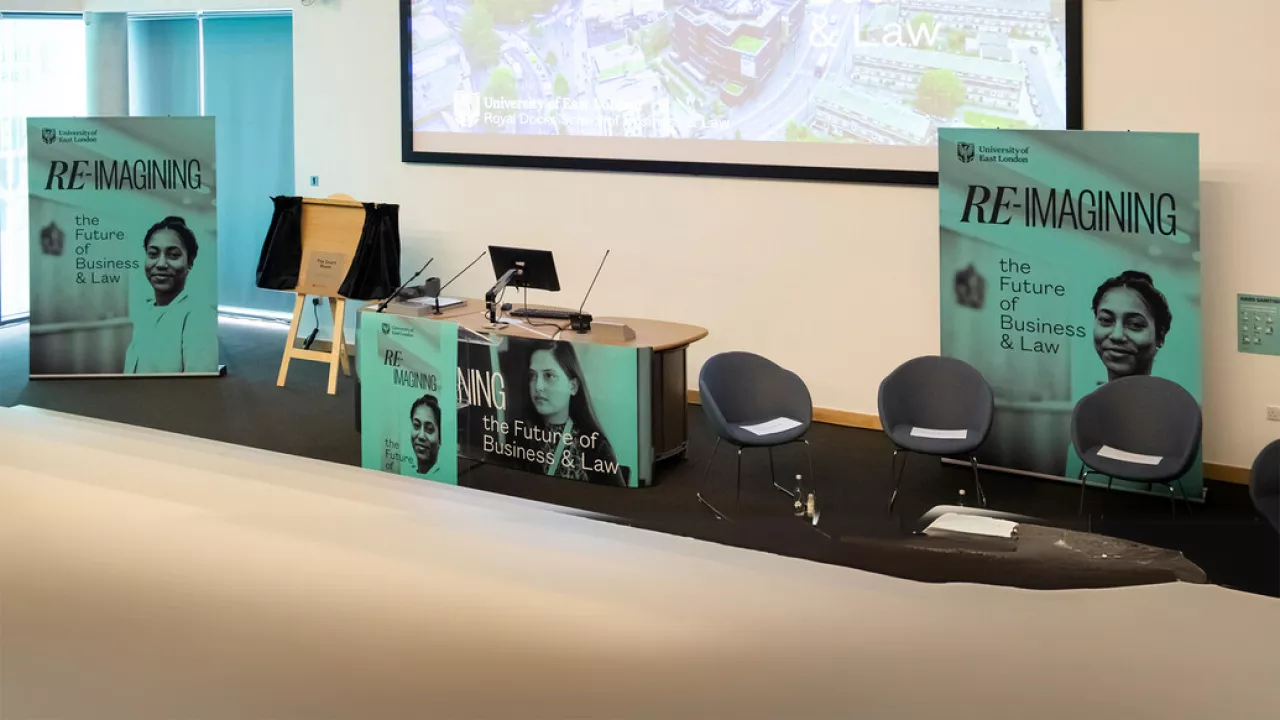Business and Community Engagement
Business and Community Engagement
Welcome to your gateway for accessing our business services and partnering with us.
At the Royal Docks School of Business and Law, we are dedicated to fostering impactful relationships between academia, industry, and the community. We support small businesses and drive enterprise development through innovative research, practical support, and strong partnerships. Discover how we can help your business thrive and make a lasting impact on society.
Expert Consultancy Services
We can help your business with:
Our consultancy services provide tailored advice and strategic support to small businesses looking to innovate and grow. Leveraging the expertise of our faculty and industry professionals, we offer solutions across various domains, including marketing, finance, legal, and strategic management.

Specialised Support from Our Practice-Based Centres
Our practice-based centres are designed to offer in-depth support in key business areas. Each centre is staffed by experts who provide practical assistance and cutting-edge solutions.
Our Centres include:
- Legal Advice Centre: The Legal Advice Centre offers free legal advice to the community, provided by university students supervised by experienced solicitors.
- Business Advice Centre: The Business Advice Centre (BAC) provides free business advice, networking, business plan creation, and workshops to locals, SMEs, and the university community.
- Tax and Accountancy Clinic: The tax and accountancy clinic offers free support for small businesses, including self-assessment, late penalty advice, PAYE codes, tax calculations, deductible advice, bookkeeping, financial planning, and accessing government grants and loans.
Industry Fellows: Bridging Academia and Industry
Our Industry Fellows program bridges the gap between academic research and practical business application. Our fellows are industry leaders who bring a wealth of knowledge and real-world experience to RDSBL, providing valuable insights and mentorship to both students and businesses.


Student Consultancy: Fresh Perspectives and Innovative Solutions
Our student consultancy projects offer businesses fresh perspectives and innovative solutions. By working with our talented students, businesses can tackle challenges with new ideas and strategies while providing students with valuable real-world experience.
In an immersive workshop, students embraced senior management roles in an immersive workshop, tackling real-time news, market shifts, and economic data impacting global corporations. They proposed solutions based on comprehensive market research and analysis, working closely with business owners to refine strategies.
Business Incubator: Nurturing Startups and Entrepreneurs
Our Business Incubator Programme is designed to nurture startups and entrepreneurs from ideation to market entry. We provide mentorship, resources, and networking opportunities to help develop and launch business concepts (social or commercial).
Success Stories
- Business Incubator Programme: With a dedicated group of 13 participants, the business incubator workshop delved deep into addressing real-world small business challenges. Select entrepreneurs presented their ideas before a panel of seasoned experts, sparking enlightening discussions.








